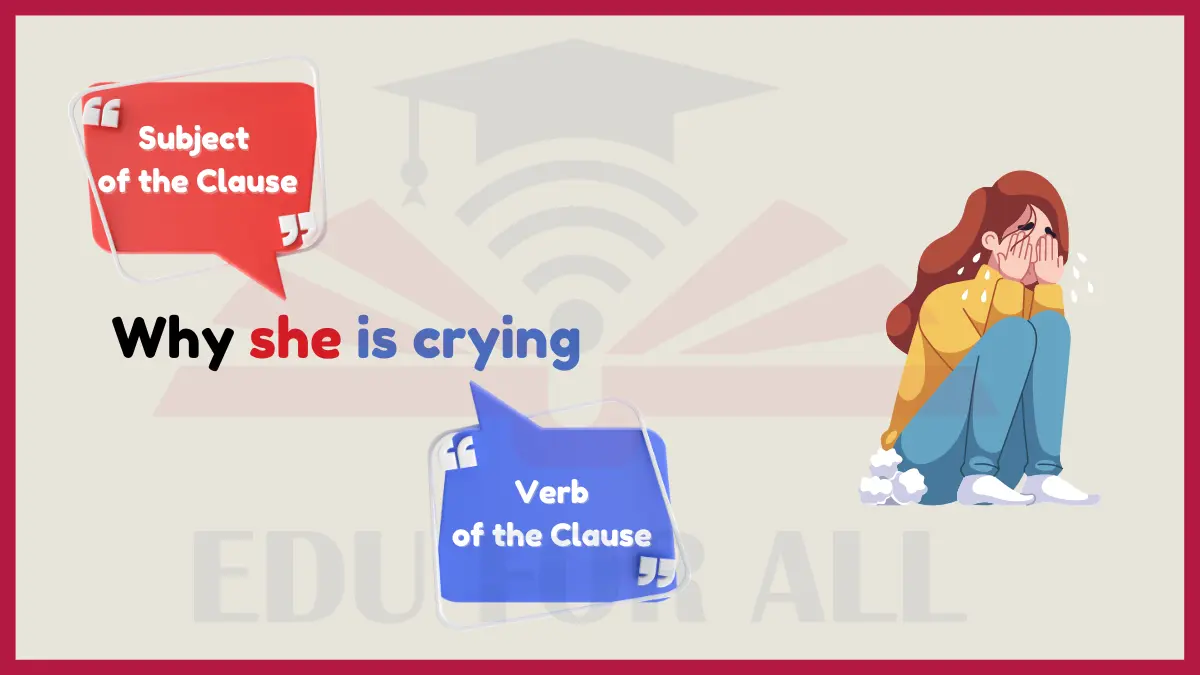A noun clause acts as a noun in a sentence by naming a person, place, thing or idea. It has a subject and verb but cannot stand alone because it begins with a subordinate conjunction or is dependent on another clause.
Examples of Noun Clauses
Here are 20 examples of noun clauses:
Example 1
What she said
This is a noun clause functioning as the direct object of the verb “said.” It begins with the subordinating conjunction “what,” indicating it is a dependent clause acting as a noun.
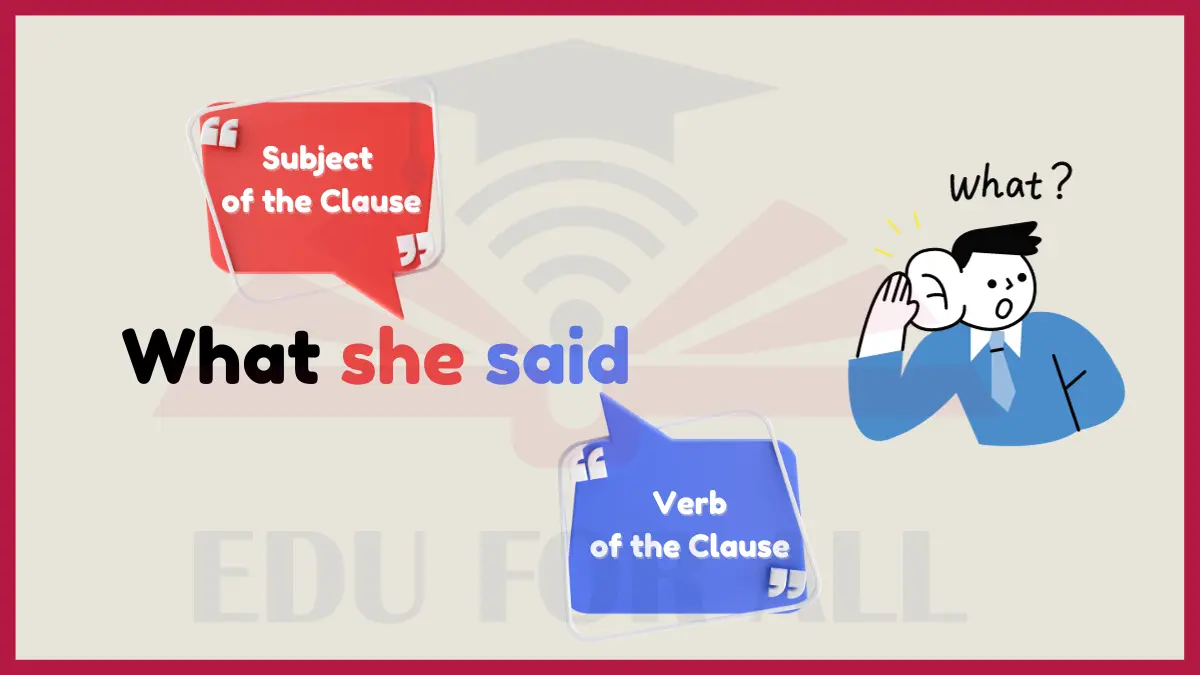
Example 2
Whether he will attend the party
This noun clause begins with the subordinating conjunction “whether” and functions as the direct object of the verb “attend.” It acts as a noun in the sentence.
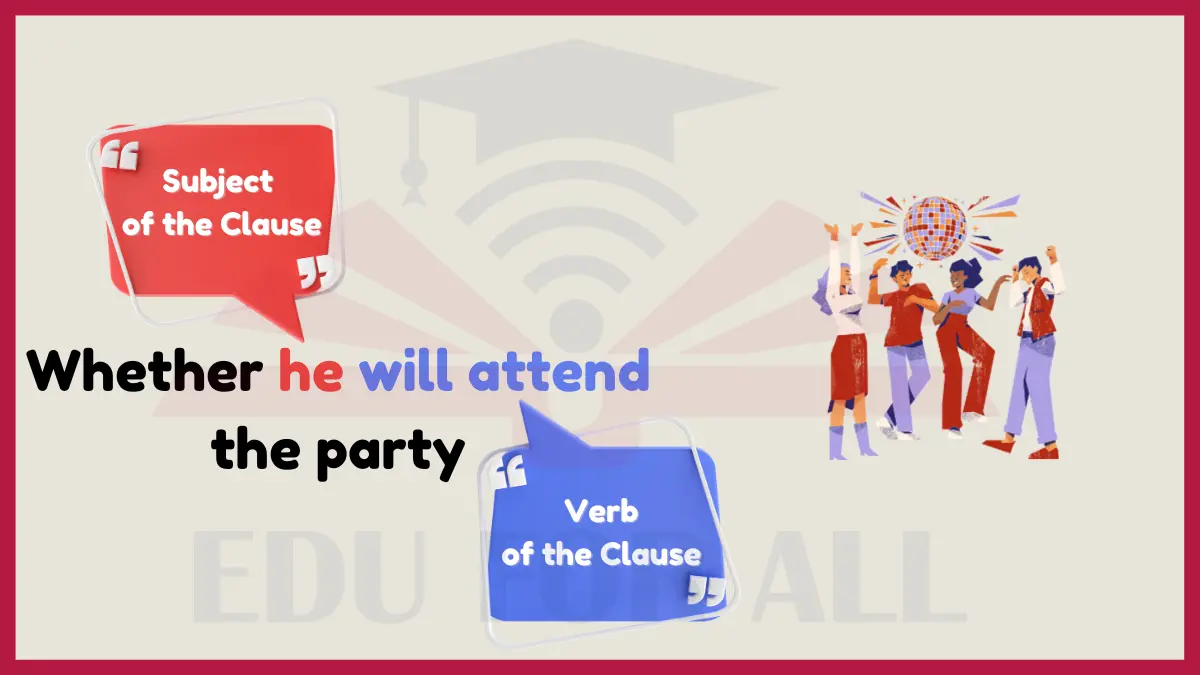
Example 3
Whoever wins the race
Beginning with the relative pronoun “whoever,” this noun clause functions as the subject of the verb “wins.” As a clause acting as a noun, it is a noun clause.
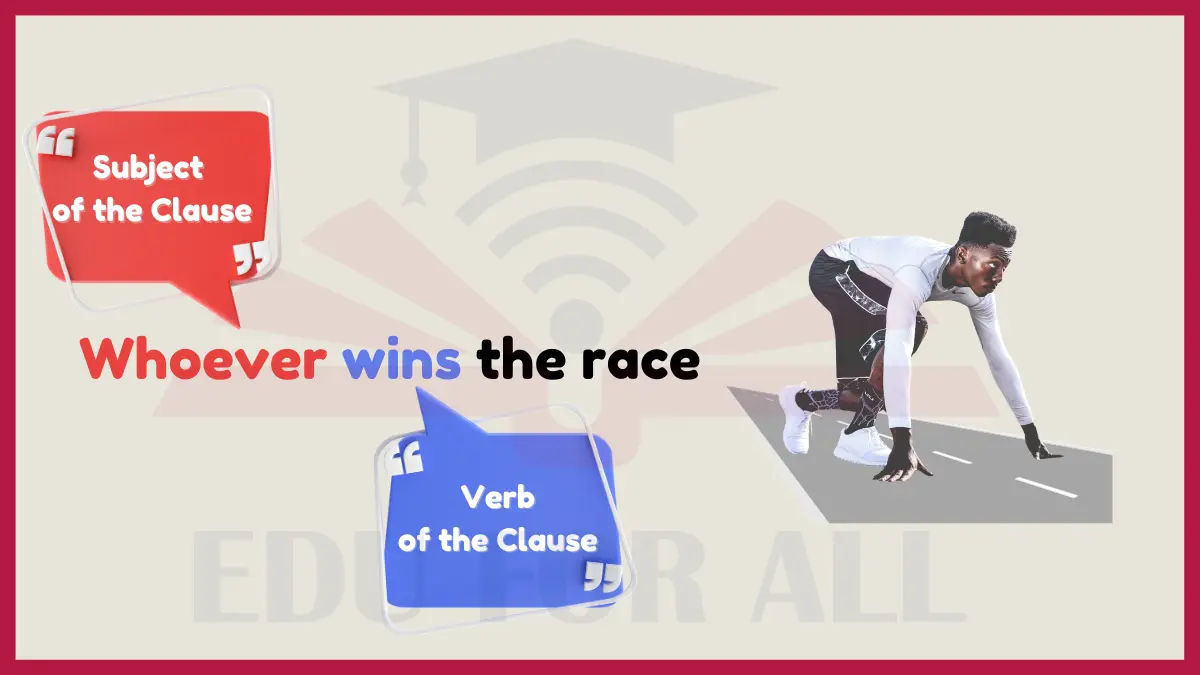
Example 4
Whose book this is
Beginning with the relative pronoun “whose,” this noun clause acts as the subject of the linking verb “is.” Its function as a noun makes it a noun clause.
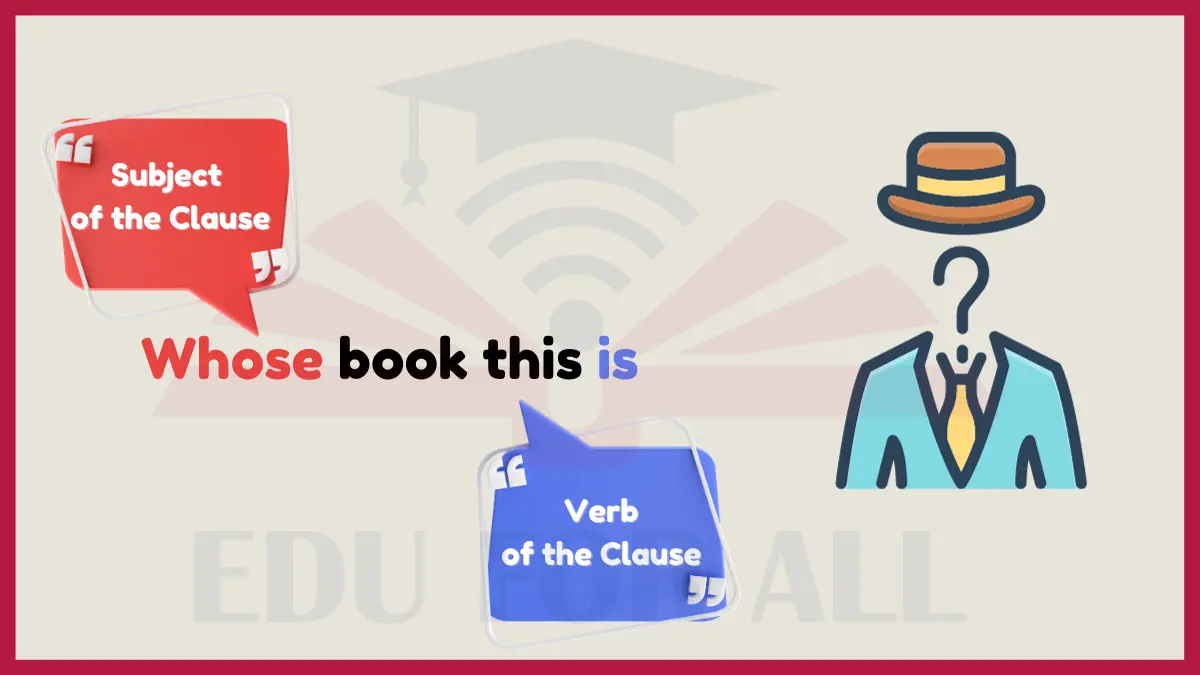
Example 5
What time it is
This noun clause begins with the subordinate conjunction “what” and serves as the direct object of the verb “is.” Its noun function defines it as a noun clause.
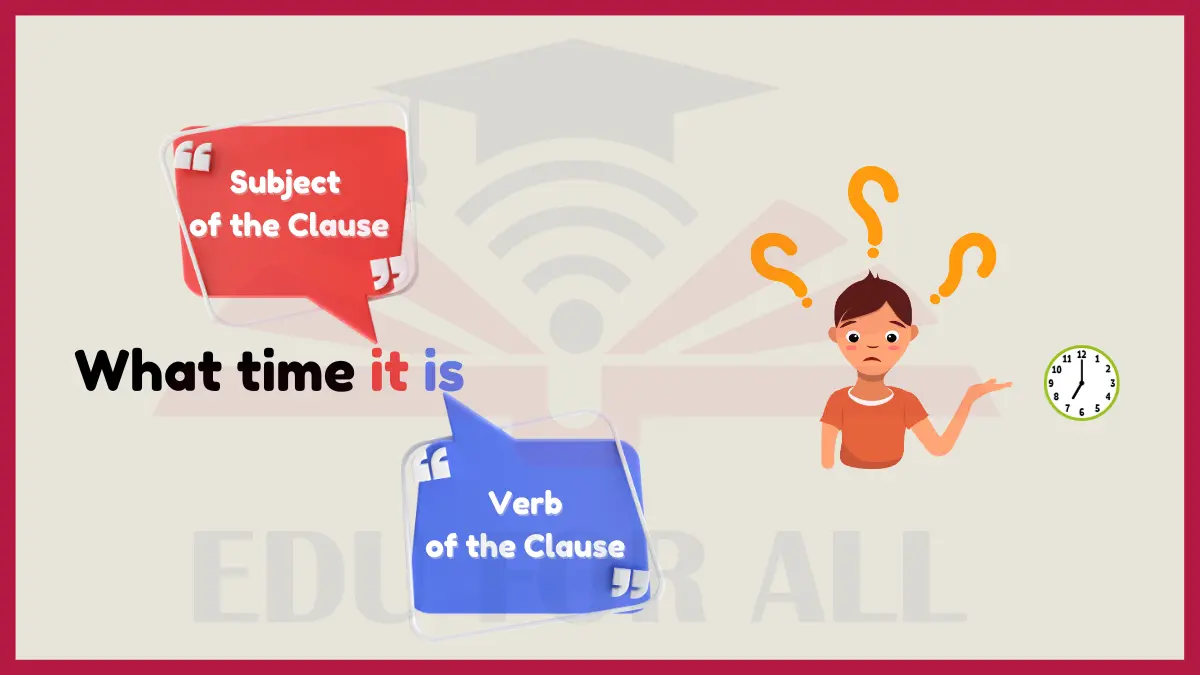
Example 6
When we should arrive
Beginning with the subordinating conjunction “when,” this noun clause acts as the direct object of the verb “should arrive.” Its syntactic noun function makes it a noun clause.

Example 7
That she will help us
Beginning with the subordinating conjunction “that,” this noun clause serves as the direct object of the verb “will help.” Its noun function defines it as a noun clause.
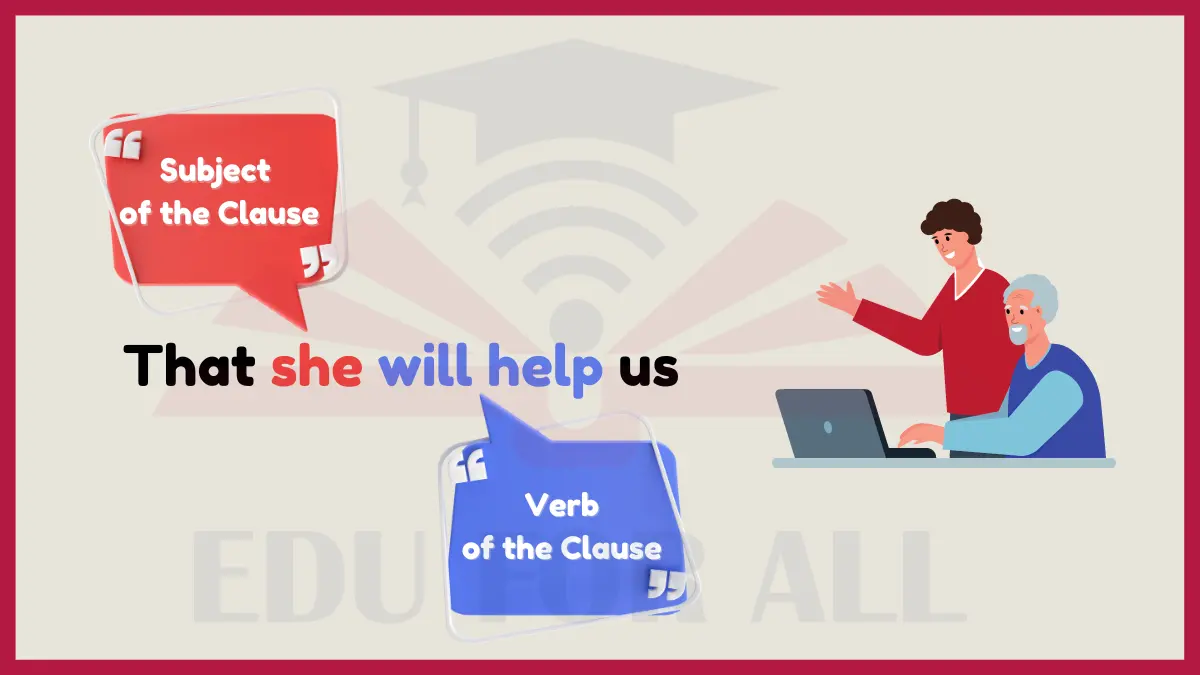
Example 8
Where the party will be held
This noun clause begins with “where” and functions as the direct object of “will be held.” Its noun function makes it a noun clause.
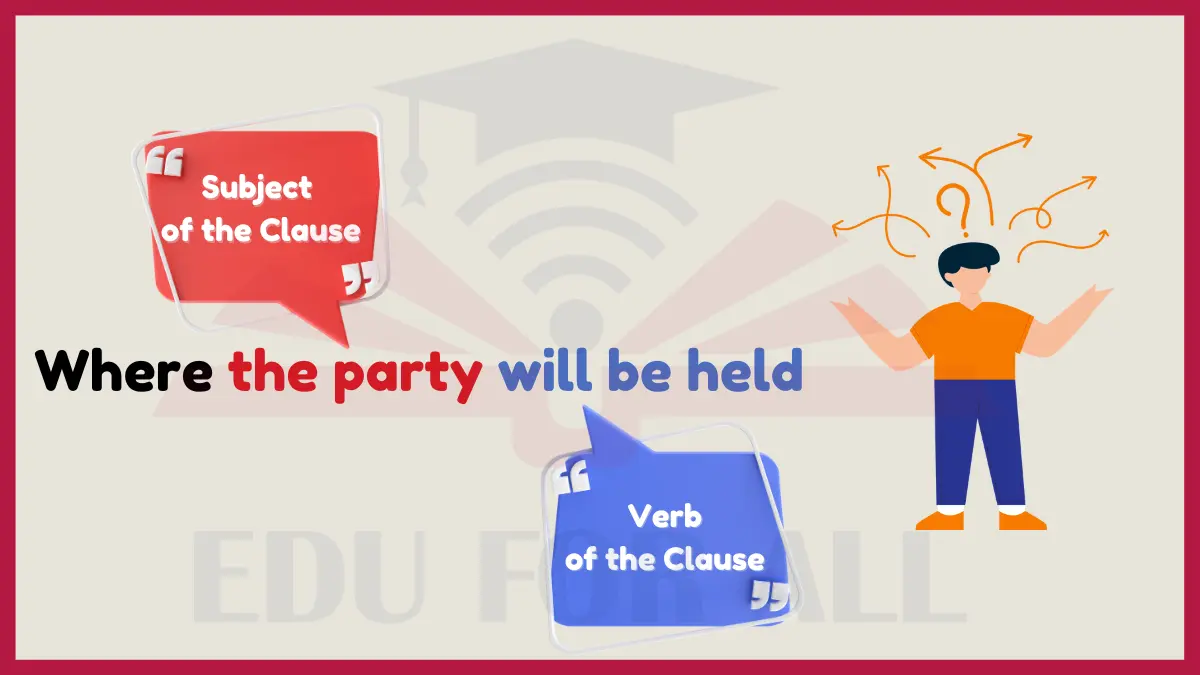
Example 9
Why he left early
Beginning with the subordinating conjunction “why,” this noun clause functions as the direct object of “left.” Its syntactic noun role makes it a noun clause.
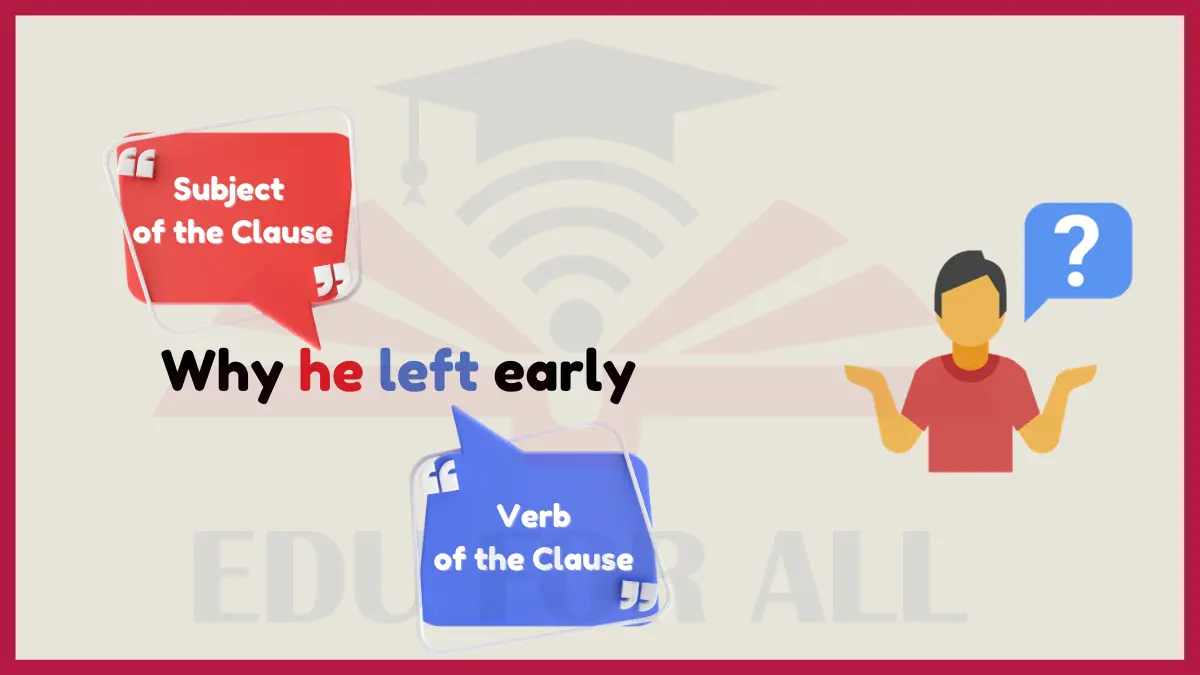
Example 10
Whenever they need help
Beginning with “whenever,” this noun clause serves as the direct object of “need.” Its noun function defines it as a noun clause.
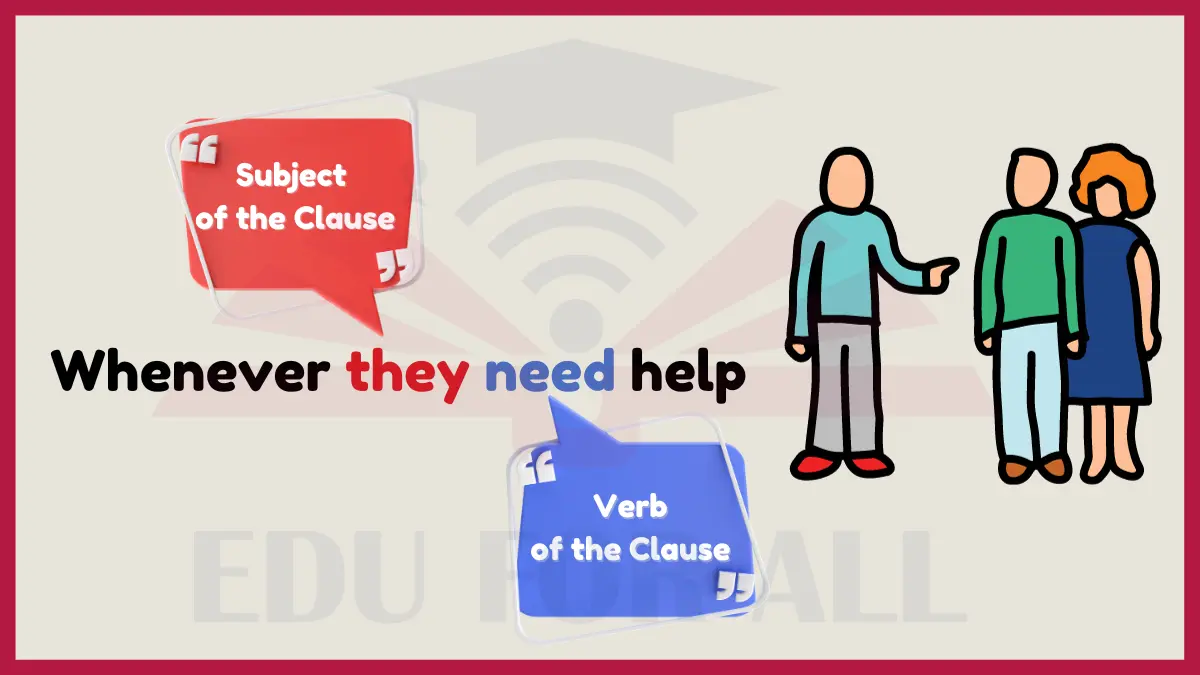
Example 11
What music she likes
Starting with “what,” this noun clause functions as the direct object of the verb “likes.” Its role as a noun makes it a noun clause.
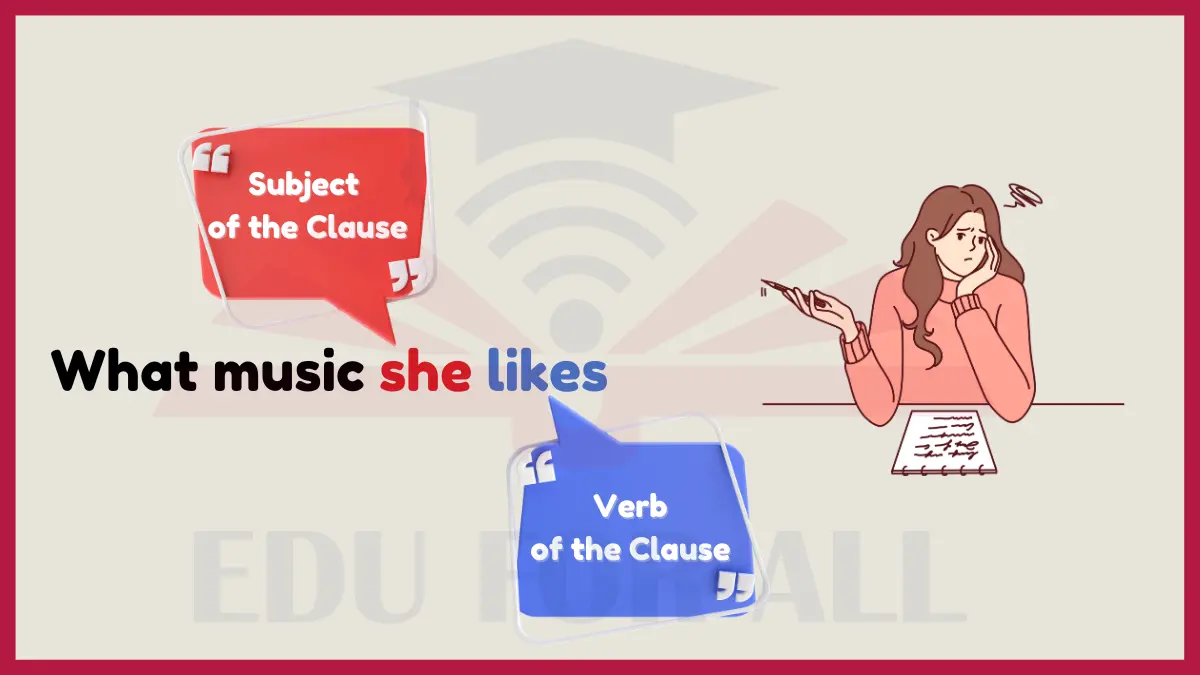
Example 12
How we will get there
Beginning with the subordinating conjunction “how,” this noun clause serves as the direct object of “will get.” Its syntactic noun role identifies it as a noun clause.
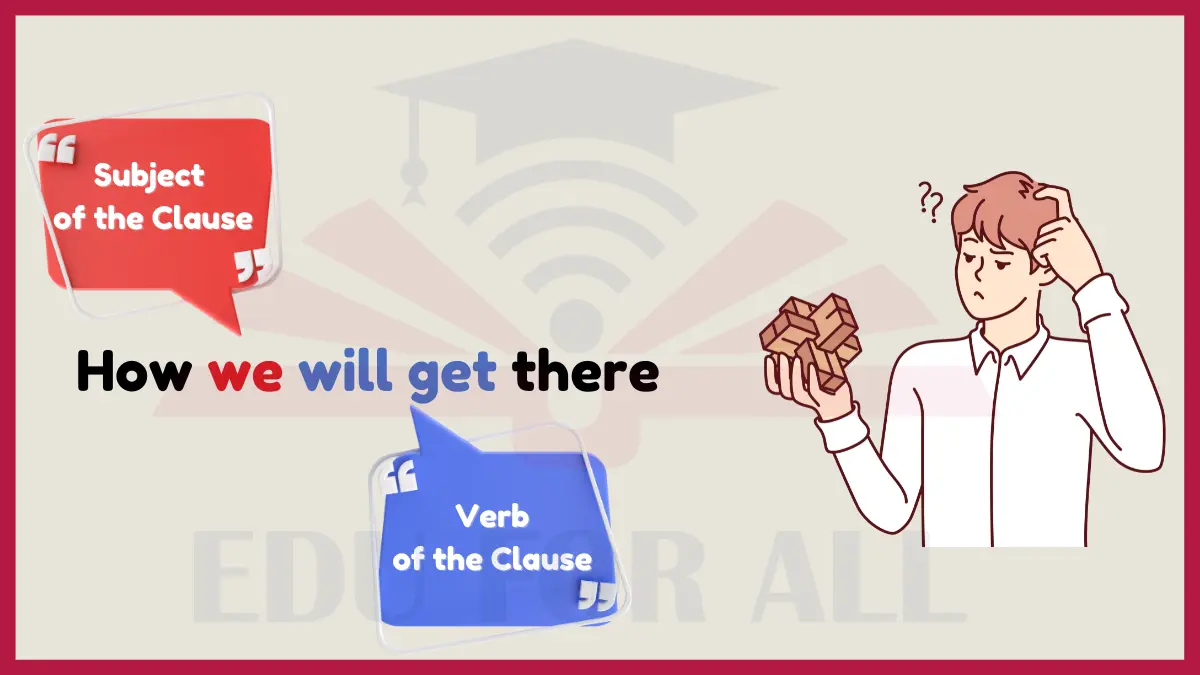
Example 13
That the Earth is round
This noun clause begins with “that” and functions as the subject of the linking verb “is.” Its role as a noun makes it a noun clause.
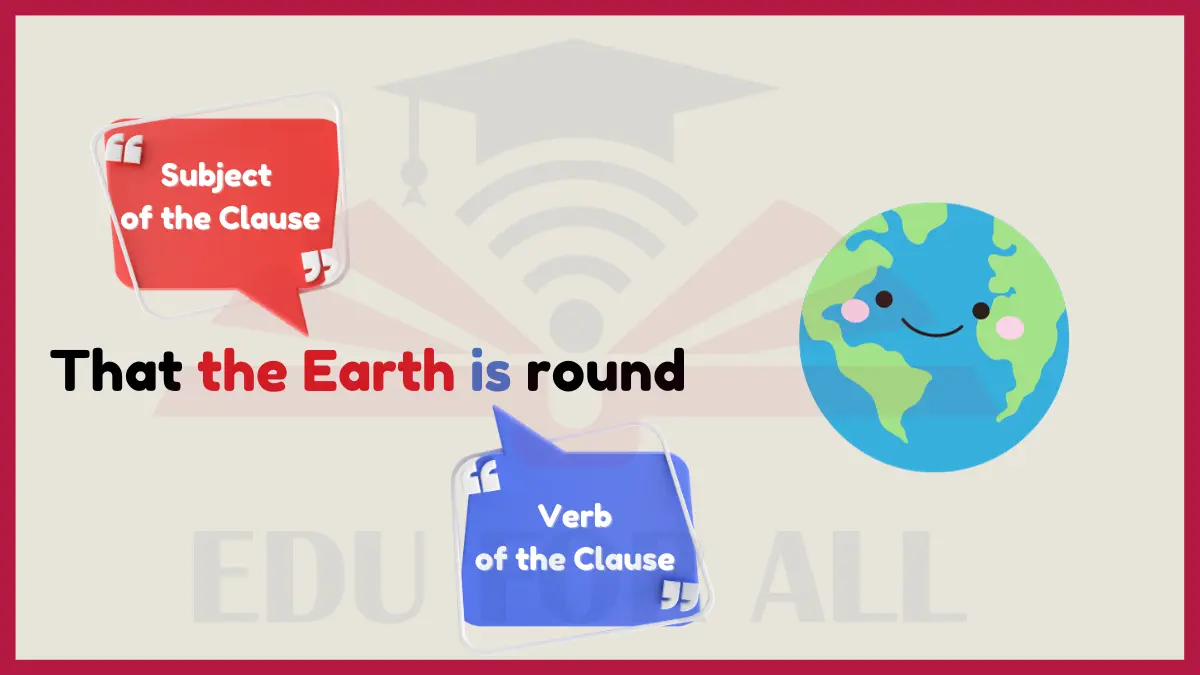
Example 14
Whose car was stolen
Starting with the relative pronoun “whose,” this noun clause serves as the subject of the passive verb “was stolen.” Its noun function defines it as a noun clause.

Example 15
Where the most damage occurred
Beginning with “where,” this noun clause functions as the subject of the verb “occurred.” Its syntactic role as a noun makes it a noun clause.

Example 16
Who let the dogs out
This noun clause begins with the relative pronoun “who” and serves as the subject of the verb “let.” Its noun function identifies it as a noun clause.
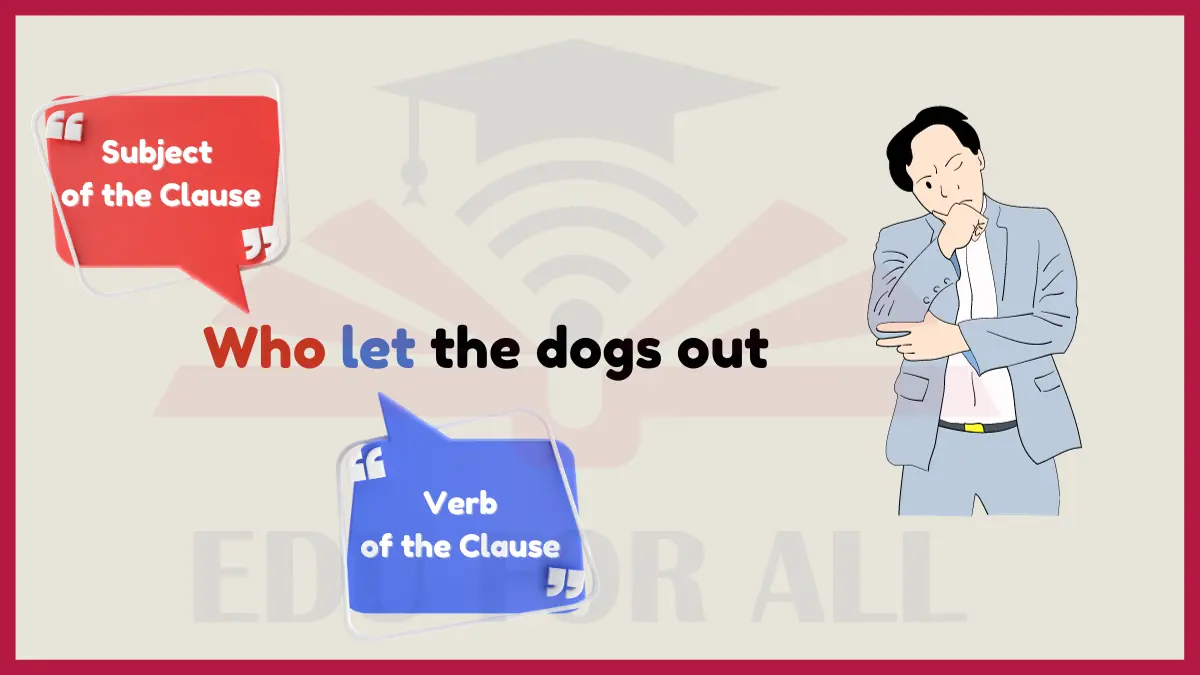
Example 17
That she told the truth
Starting with the subordinating conjunction “that,” this noun clause is the direct object of “told.” Its role as a noun defines it as a noun clause.
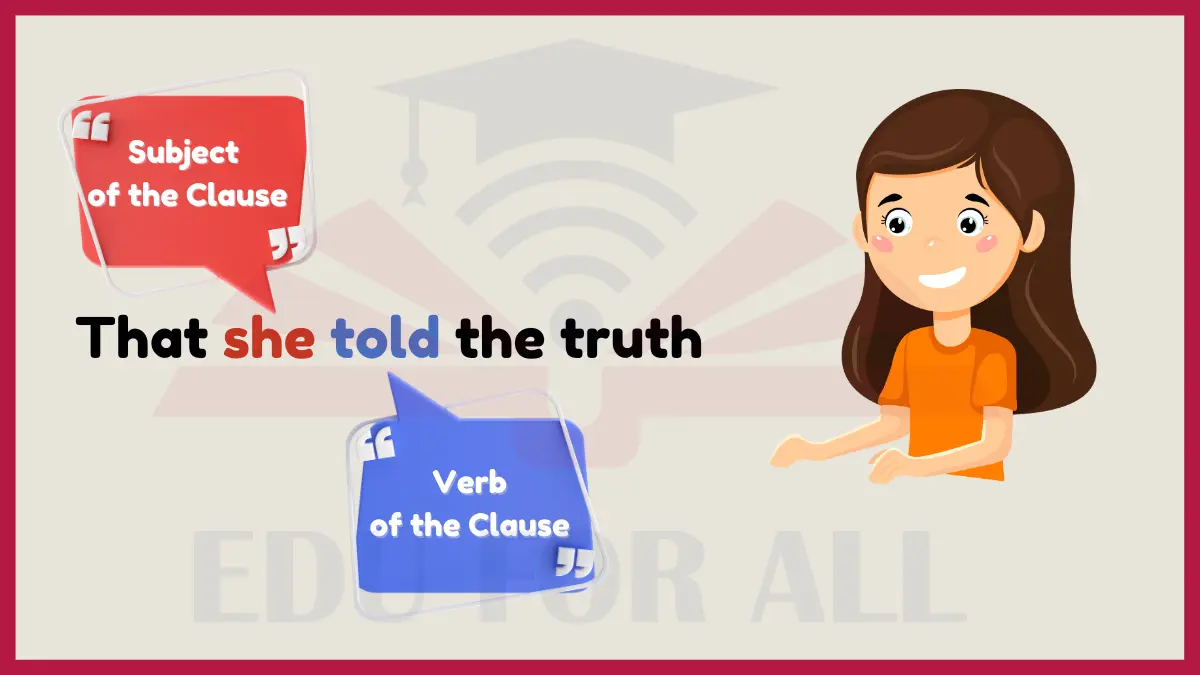
Example 18
What the president said in his speech
Beginning with “what,” this noun clause functions as the direct object of the verb “said.” Its syntactic role as a noun makes it a noun clause.
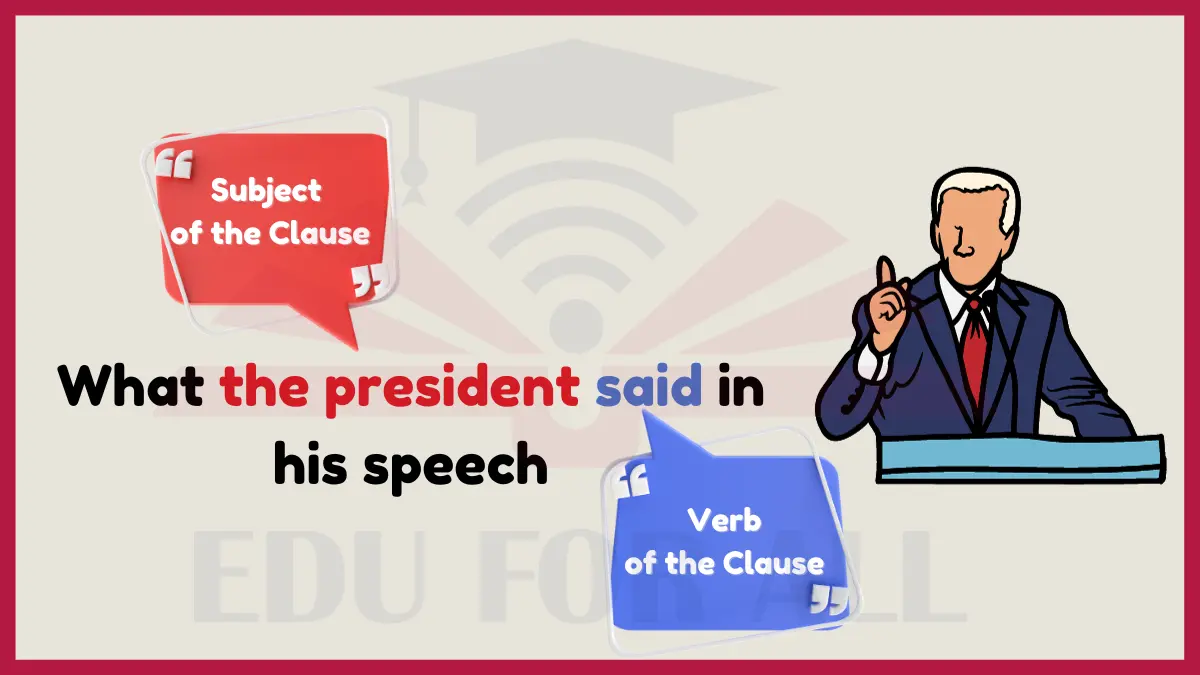
Example 19
When the store opens
This noun clause begins with “when” and acts as the subject of the verb “opens.” Its role as a noun defines it as a noun clause.
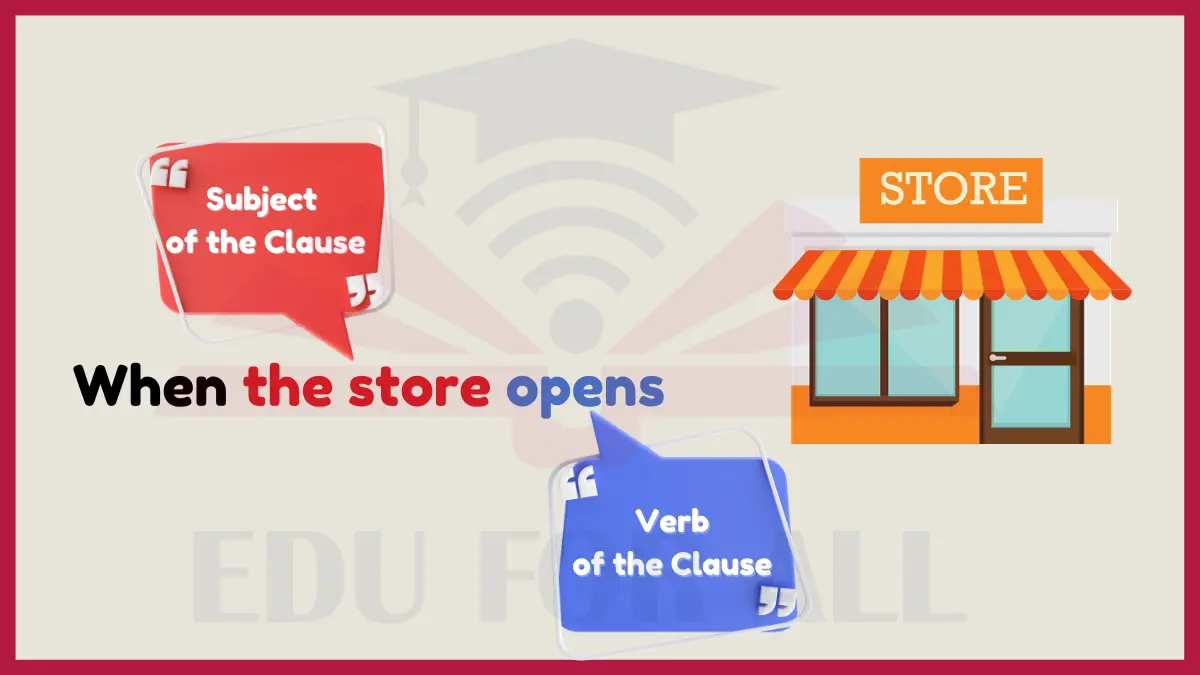
Example 20
Why she is crying
Starting with the subordinate conjunction “why,” this noun clause serves as the subject of the verb “is crying.” Its syntactic noun function makes it a noun clause.
